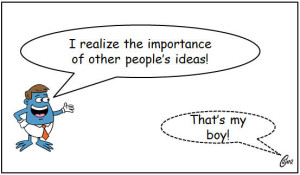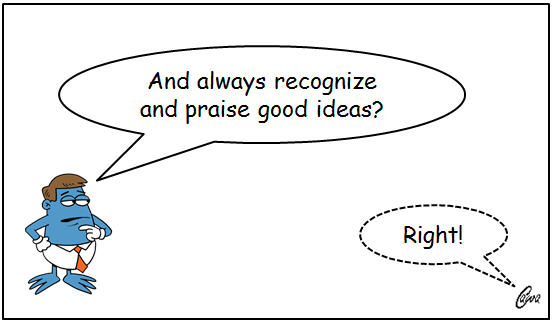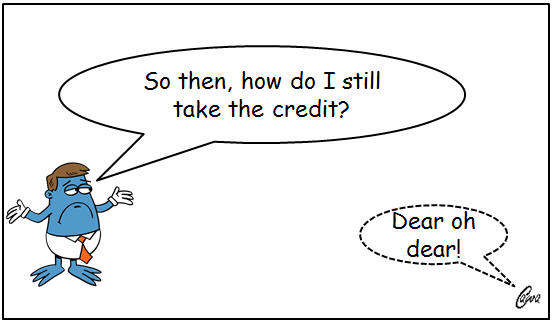



Where good ideas come from
There’s quite a lot of evidence that suggests we are all much more likely to come up with ideas when we are faced with difficult challenges that fall outside our normal experience. There is also a lot of evidence to support the notion that people who have a network of friends and associates tend to resolve their problems more easily. This relationship between creative inspiration and ideas-sharing frequently makes it difficult to know where an idea came from in any given situation.
Added to this, we all know that some people take other people’s ideas without giving proper acknowledgement and credit. All of this can make it difficult for managers to allocate praise correctly when good ideas surface.
Motivational Issues
If you talk to people who are gifted when it comes to the generation of ideas, they will typically tell you that they find it difficult to generate ideas when de-motivated. This is where the power of praise comes in. It costs nothing to praise people and yet, it is clear that praise can keep people motivated through even the most difficult of situations. What this tells us is that to be effective, we need to be on the constant lookout for opportunities where we can praise others. Additionally, we need to do this not only with subordinates but also with friends, family and even those to whom we report. Based on the deployment of the Talent Chaser Performance Appraisal Module, we have been able to collect direct evidence that proves people who praise others not only receive praise in return but also have much more support when faced with difficulties.
Recruitment Issues
While recruitment processes have changed somewhat with the advent of the internet and keyword search technology that helps recruiters sort through résumés, it is still true that most recruiters read through voluminous numbers of résumés as they create a shortlist of candidates for interview.
Unfortunately however, when it comes to determining whether or not a candidate places emphasis on the giving of praise, candidate résumés don’t help.
Quite apart from the fact that the average résumé is no longer written by the job applicant and that the average recruiter, drowning in such résumés, barely has time to skim through them, résumés are silent when it comes to gaining an appreciation of thecharacter of a job applicant. It turns out that trying to discern this at interview is also virtually impossible.
Through the deployment of evidence-based management processes, we have learnt that there is a way to resolve this problem while saving a good deal of time and effort.
It is possible to discover the true character of a candidate by including the analysis of their motivations and frustrations within a properly constructed evidence-based candidate assessment tool. At the same time, by requiring all job applicants to be assessed as part of a multi-stage recruitment process, it is possible to use this technology to screen out automatically individuals who lack the necessary characteristics while at the same time radically reducing the number of résumés that need to be reviewed
You must be logged in to post a comment.